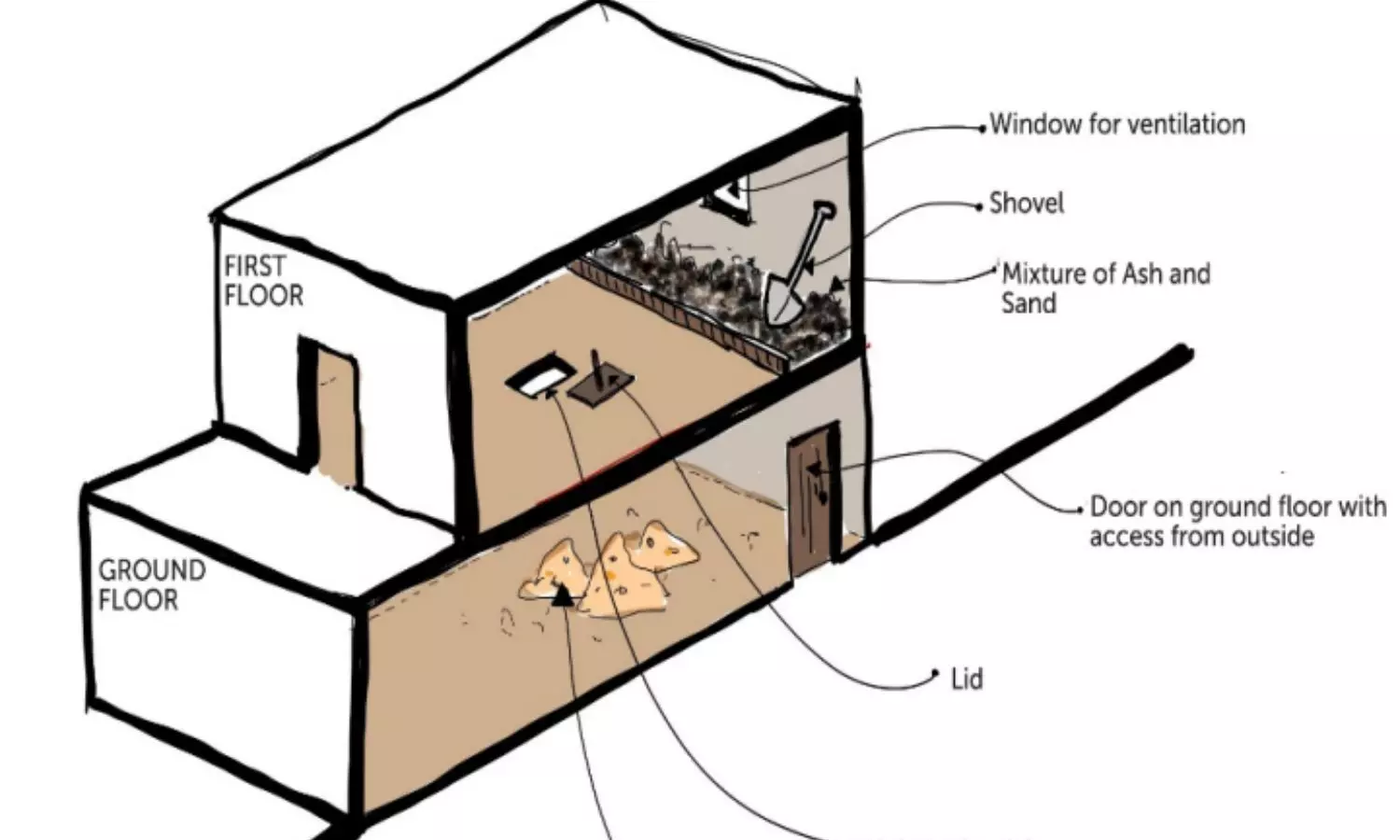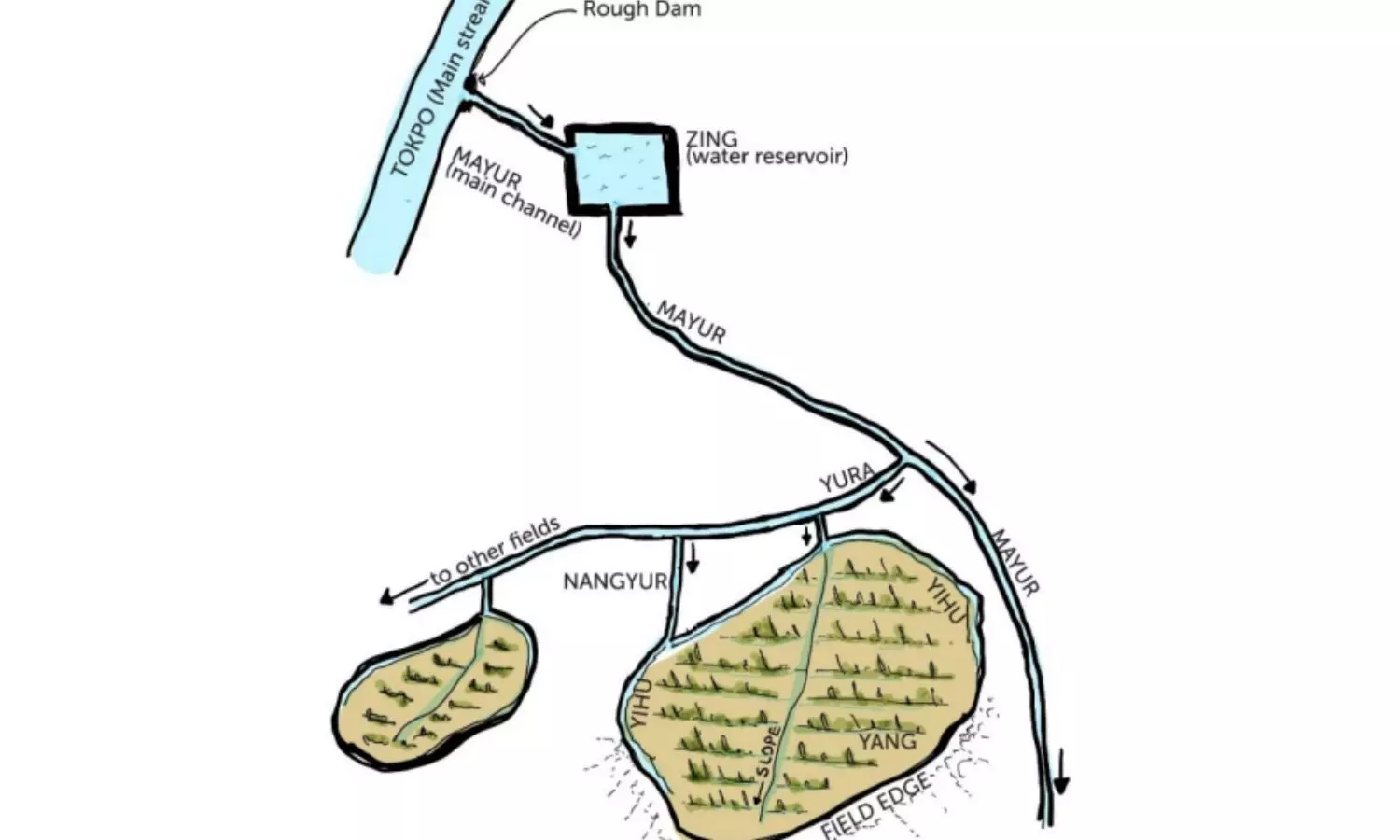November 19 is celebrated as World Toilet Day to raise awareness around sanitation and hygiene. And there is much to be learnt from Ladakh’s traditional dry compost toilets that use no water flush, hence conserve water, and provide compost that is used for farming purposes.
In times when water shortage is rampant and the challenges of climate change are growing, the cold desert of Ladakh shows the way with its traditional dry toilets that require next to no water, are not dependent on sewage systems and are extremely eco-friendly in the fragile environment.
Also Read: Uttar Pradesh to Set Up 1.5 Lakh Toilets, to Mobilise 11,000 Sanitation Workers for Mahakumbh 2025
What is A Dry Toilet
The dry toilets of Ladakh are double storeyed. The users squat over a flattened mud platform with a cavity at the centre, which opens into a big pit below.
After defecating, ash/ soil/ or hay is shovelled into the pit and closed. This ensures there is no odour as the waste matter decomposes and converts into humanure over time.
The dry toilets are also where other biodegradable waste and ashes are dumped.

Dry toilets are an ecological solution. Photo by Cultural Systems in Water Management for Disaster Risk Reduction: The Case of the Ladakh Region
Unlike the modern toilets that use between 6-11 litres of water per flush, no water is required in the dry toilets of Ladakh. And, in a water-strapped environment such as the cold desert of Ladakh, this is eminently suitable.
How Dry Toilets Feed the Fields
The humanure that is generated in the dry toilets is used by people in their farm lands as natural fertilisers to cultivate crops. The accumulated waste that is composted is transported to farmlands to be used as manure for the upcoming sowing season.
In autumn, soil from the now-unused field is carried back to the toilet where it is once again used for shovelling purposes. This is how the complete cycle works.
This cycle does not use water to flush the waste, and produces manure. There are posters outside monasteries in Leh, capital of Ladakh, that explain how, ‘traditional Ladakhi toilets do not waste or pollute water like water toilets, and they also produce useful manure for fields and trees. Please throw a shovelful of soil down the hole after each use’.
Leh which is a district of Ladakh is already facing a severe shortage of water, more so since it has become a popular tourist destination. There is a need to adopt and promote these traditional dry toilets.

These dry toilets, which promote ecological sanitation (ecosan) have also been popularised in north Bihar, India’s most flood-prone region where annual floods make access to sanitation a huge challenge.
Also Read: Flood-Resilient Toilet: An Eco Katha
Megh Pyne Abhiyaan, a non-profit that works on water and sanitation in Bihar and Jharkhand, has come up with Phaydemand Shauchalaya (beneficial toilet), which uses very little washwater and produces humanure.
Benefits of Dry Toilets
Dry toilets are an ecological and economical alternative to conventional toilets as they do not require water to operate. They can be used to ensure access to safe and resilient sanitation facilities and provide a solution to faecal sludge management and water pollution. Human waste from dry toilets can also be turned into a natural fertiliser and support local agriculture.
- No water means it needs no access to a sewage systems.
- It is free of chemicals as the decomposition of urine and faeces takes place naturally
- Dry toilets are a lot more hygienic than conventional ones.
- They are environmentally friendly and they can be a source of natural fertilisers
- The dry toilets are odourless.
- They are not dependent on sewer systems and eliminate they use of septic tanks




















